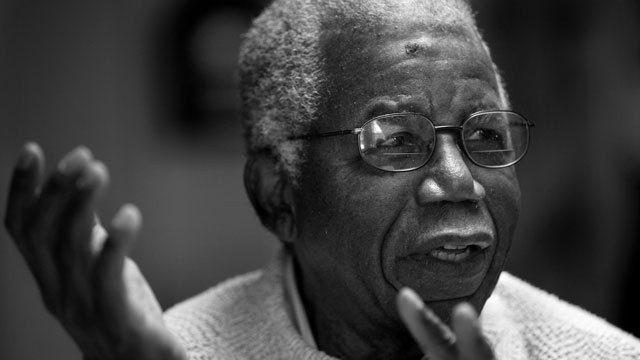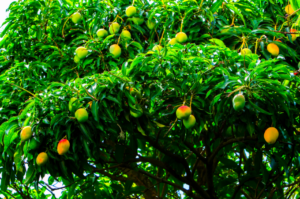After forty hears of silence, Achebe speaks about his experience and take on the Biafran War. In a newly published memoir titled, There Was a Country: A Personal History of Biafra, he reflects on the violence that ravaged eastern Nigeria in the late 60s and also thinks about the role of the writer in a time of war. Find below a short excerpt from the book.
Excerpt from Chinua Achebe’s There Was a Country:
“The Nigeria-Biafra War was arguably the first fully televised conflict in history. It was the first time scenes and pictures—blood, guts, severed limbs—from the war front flooded into homes around the world through television sets, radios, newsprint, in real time. It probably gave television evening news its first chance to come into its own and invade without mercy the sanctity of people’s living rooms with horrifying scenes of children immiserated by modern war.
One of the silver linings of the conflict (if one can even call it that) was the international media’s presence throughout the war. The sheer amount of media attention on the conflict led to an outpouring of international public outrage at the war’s brutality. There were also calls from various international agencies for action to address the humanitarian disaster overwhelming the children of Biafra.
Said Baroness Asquith in the British House of Lords, “Thanks to the miracle of television we see history happening before our eyes. We see no Igbo propaganda; we see the facts.” Following the blockade imposed by the Nigerian government, “Biafra” became synonymous with the tear-tugging imagery of starving babies with blown-out bellies, skulls with no subcutaneous fat harboring pale, sunken eyes in sockets that betrayed their suffering. Someone speaking in London in the House of Commons or the House of Lords would talk about history’s happening all around them, but for those of us on the ground in Biafra, where this tragedy continued to unfold, we used a different language . . . the language and memory of death and despair, suffering and bitterness. The agony was everywhere. The economic blockade put in place by Nigeria’s federal government resulted in shortages of every imaginable necessity, from food and clean water to blankets and medicines. The rations had gone from one meal a day to one meal every other day—to nothing at all. Widespread starvation and disease of every kind soon set in. The suffering of the children was the most heart-wrenching.”
Order book HERE










Tanker Driver October 01, 2012 22:31
I think the Biafra war is good if you believe that war is peace. I am really doing well in my double-think class.